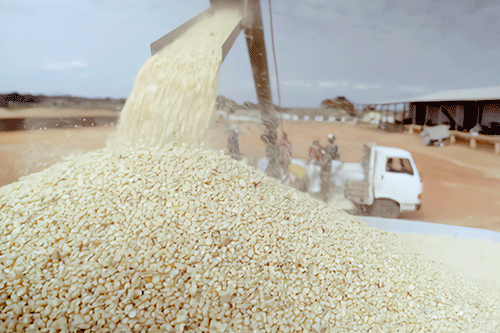Insufficient rainfall during the 2022-2023 cropping season is primarily to blame for the decline in local crop production in the third quarter of 2023 - both year-on-year and quarter-on-quarter.
Compared to the third quarter in 2022, local crop production dramatically decreased during the quarter under review, falling by 44% to 19 940 tonnes.
According to Bank of Namibia (BoN) quarterly bulletin released last month, the decline was driven by poor production observed across all monitored crop types, namely white maize, wheat, and pearl millet.
“The afore-mentioned crops declined by 42.4%, 100% and 69.2%, respectively, to 19 343 tonnes, 0 tonnes and 597 tonnes during the quarter under review compared to the corresponding quarter of 2022. This was attributed to insufficient and sporadic rains received during the 2022/23 rainfall season,” reads the bulletin.
The central bank added that as such, grain imports increased by 34.1% during the quarter under consideration to complement the low crop production to cater for domestic demand. On a quarterly basis, local crop production drastically declined by 55.4% from 44 746 tonnes produced in the previous quarter.
The country now pins its hopes on green schemes to close the gap.
Meanwhile, in its economic overview for the year, the High Economic Intelligence (HEI) entity, an independent research body specialising in economic and financial services said the sector showed resilience in 2023 with a strong performance recorded during the third quarter of the year.
“The boost in agricultural activities during this quarter was driven by a boom in the livestock sub-sector as a result of increased cattle marketing. The sector is expected to remain resilient in 2024, owing to better rainfall for crops and improved rangeland conditions for livestock farmers,” said HEI.
However, farmers are urged to continue diversifying their farming operations to minimise the risk of climatic, sectoral, or economic shocks on production output and sales. Investments in the agriculture sector are essential to boost productivity, precisely focusing on technological change and climate-resilient production techniques.


